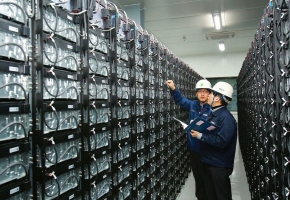Chemists have discovered a way to synthesize plastic from the exhaust gases of power plants

A research team led by Professor Yutaka Amao from Osaka Metropolitan University has successfully demonstrated the synthesis of poly-3-hydroxybutyrate, a biodegradable plastic, from waste acetone and low concentrations of CO2 using artificial photosynthesis. The study aimed to repurpose waste acetone from permanent marker ink and CO2 equivalent to exhaust gas from power plants and other industrial sources.
This new study aimed to reuse waste acetone from permanent marker ink and low concentrations of CO2—equivalent to exhaust gas from power plants, chemical plants, or steel factories.
Acetone is a relatively inexpensive and reasonably harmless chemical used in many different laboratory settings, either for reactions or as a cleaning agent, which produces waste acetone. The acetone and CO2 acted as raw materials to synthesize 3-hydroxybutyrate using artificial photosynthesis, powered by light equivalent to sunlight.
“In the future, we aim to develop artificial photosynthesis technology further, so that it can use acetone from liquid waste and as well as exhaust gas from the laboratory as raw materials,” stated Professor Amao.
Source: Osaka Metropolitan University







